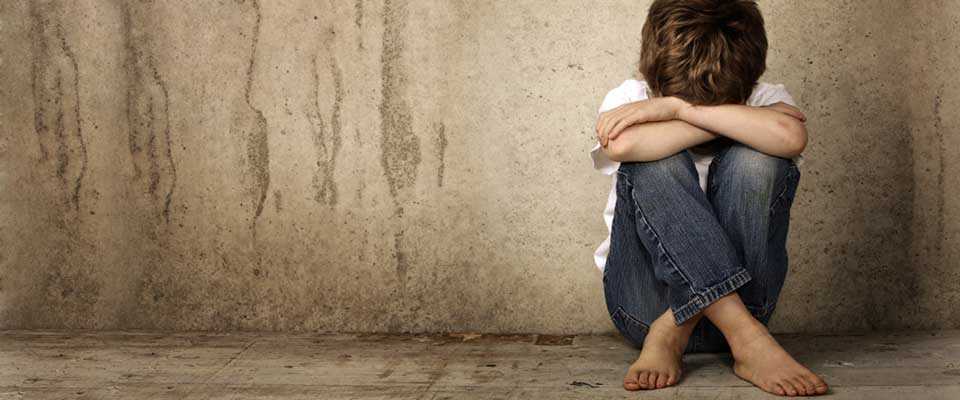What is Trauma?
Many different events or experiences can be called “traumatic.” Trauma refers to experiences that are overwhelming and may leave a person, feeling helpless, vulnerable, or very frightened. Trauma may include specific types of events, such as being in an accident or experiencing a natural disaster like a hurricane or an earthquake. Trauma may also include ongoing stressors, such as physical or sexual abuse. For children, trauma is often about more than physical harm. For instance, separation from a caregiver, emotional neglect, and lack of a stable home (such as living in many different foster homes), may be very traumatic.
How does trauma impact children?
Children who have experience ongoing trauma may have many different reactions. Children may:
- Develop an expectation that bad things will happen to them. When children have many bad things happen, they may come to expect them. They may overestimate times when they are in danger, or be fearful or withdrawn even in situation that feel safe to other people
- Have a hard time forming relationships with other people. Trauma often involves children being hurt by others and/ or not being protected by others. When early relationships are not consistently safe, children may develop a sense of mistrust in relationships.
- Have difficulty managing or regulating feelings and behavior. Traumatic stress is overwhelming, and children are flooded by strong emotions and high level of arousal. Children may feel like they are unable to rely on others to help them with these feelings – for instance, they may believe no one is safe; they may worry that other people will think they are bad; and so on.
- Have difficulty developing a positive sense of themselves. Children who experience trauma may feel damaged, powerless, ashamed, and/or unlovable. It is often easier for children to blame themselves for bad things happening, than to blame others. Over time, children may develop a belief that there is something wrong with them.
How does trauma impact parents and caregivers?
When a child experiences trauma, the entire family system is likely to be affected. Sometimes the child is the only one exposed to an event, and other times it is the entire family – or even the larger community – that has experienced stress, violence, or adversity. Regardless, what impacts one member of a unit will almost always have some impact on others within that system.
When parents experience similar stressors as their children – for instance, when a child and his or her mother are both exposed to family violence, or when all family members experience sudden traumatic loss – the adults may experience many of the emotional, cognitive, or body-based responses described above. These may show up differently in adults than in children, but it is not uncommon for both caregivers and children to experience similar reactions to traumatic exposures.
For parents or other caregivers, this is often compounded by the array of emotions, thoughts, and reactions involved in trying to love and take care of a child who is struggling with strong feelings and behaviors. Parenting or caring for any child is hard at times; caring for a child who has experienced significant trauma or stress will often bring an additional layer of challenge.
It is not uncommon for caregivers of trauma-impacted children to have some or all of these emotional and cognitive responses:
- Guilt and shame about child experiences: “How could these things happen to my child?”
- Reduced feelings of competence as a parent or caregiver: “Why is my/this child rejecting me?” or ““Why can’t I help my/this child calm down?”
- Anger and blame of the child: “She’s doing this on purpose! She’s trying to manipulate me.”
Strong emotions or difficult thoughts such as these can lead to self-protective behavioral responses (what we do) or physiological responses (the ways our body reacts), such as:
- Shutting down: Withdrawing or pulling back, as a way to protect against hard thoughts and feelings. This reaction may help parents or caregivers manage and get through overwhelming days, but may also lead to difficulty connecting with or paying attention to the child’s needs.
- Surges of arousal: Our brains protect us in moments of danger by filling our bodies with sudden bursts of energy (the “fight” response). When families are stressed and when caregivers have had to manage difficult child behaviors, emotions, or interactions repeatedly, these can lead to the same energy surges that protect us from threat. Although this arousal surge is a protective adaptation in dangerous situations, when it is activated in interactions it can be very hard for both caregivers and children, and may lead to quickly escalated responses in the moment.
- Overreacting: Trying to control or protect the child through overly punitive or authoritative response, often as an attempt to maintain emotional or physical safety. This reaction may lead to stifling child emotions and communications, and may lead to power struggles and decreased feelings of safety for everyone.
- Being overly permissive: Trying to prevent child escalation, by giving in to the things that the parent / caregiver might normally set limits on. This reaction may prevent distress and escalation in the short-term, but over time may lead to the child (and / or the parent) feeling unsafe and uncertain, due to the lack of structure and boundaries.
Many parents or caregivers – even those who are very competent, and who function well in many other situations – will struggle with one or more of these reactions and coping strategies when caring for a child who has been affected by trauma. These reactions and responses are normal responses to overwhelming circumstances, and are an important reason that ARC treatment focuses on the caregiving system as well as the child.


